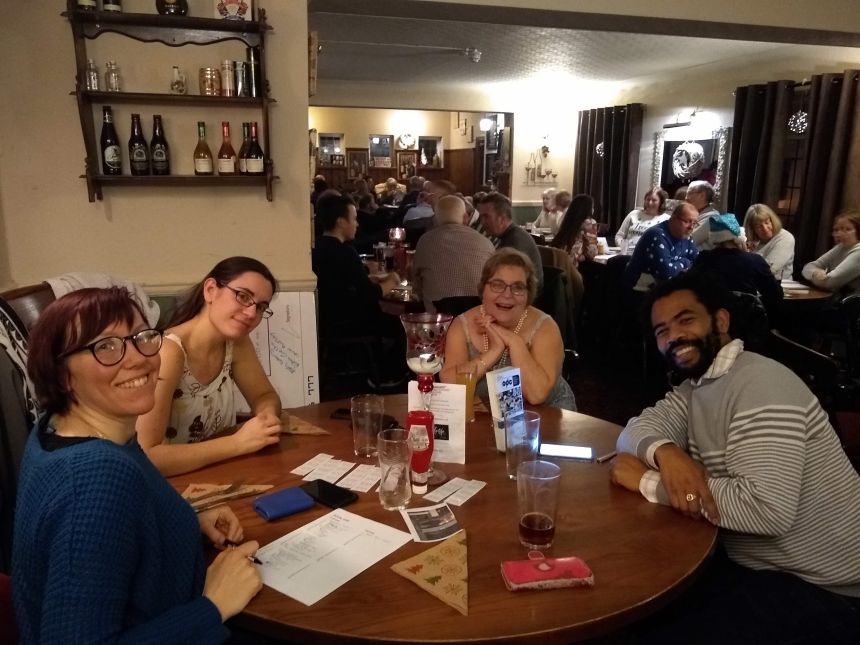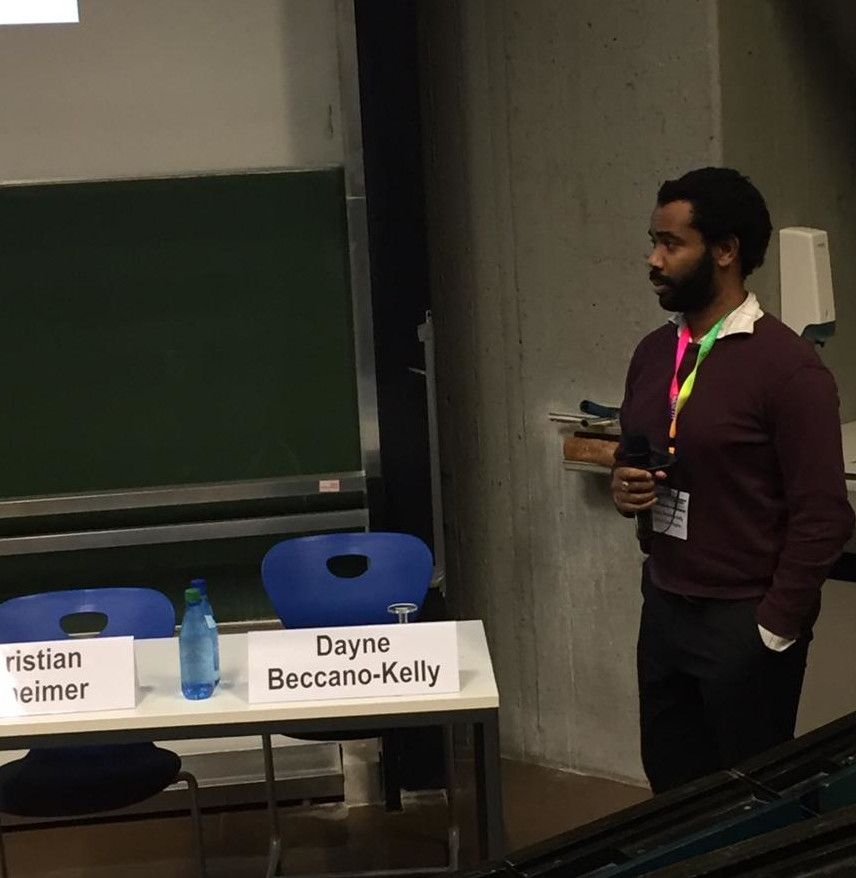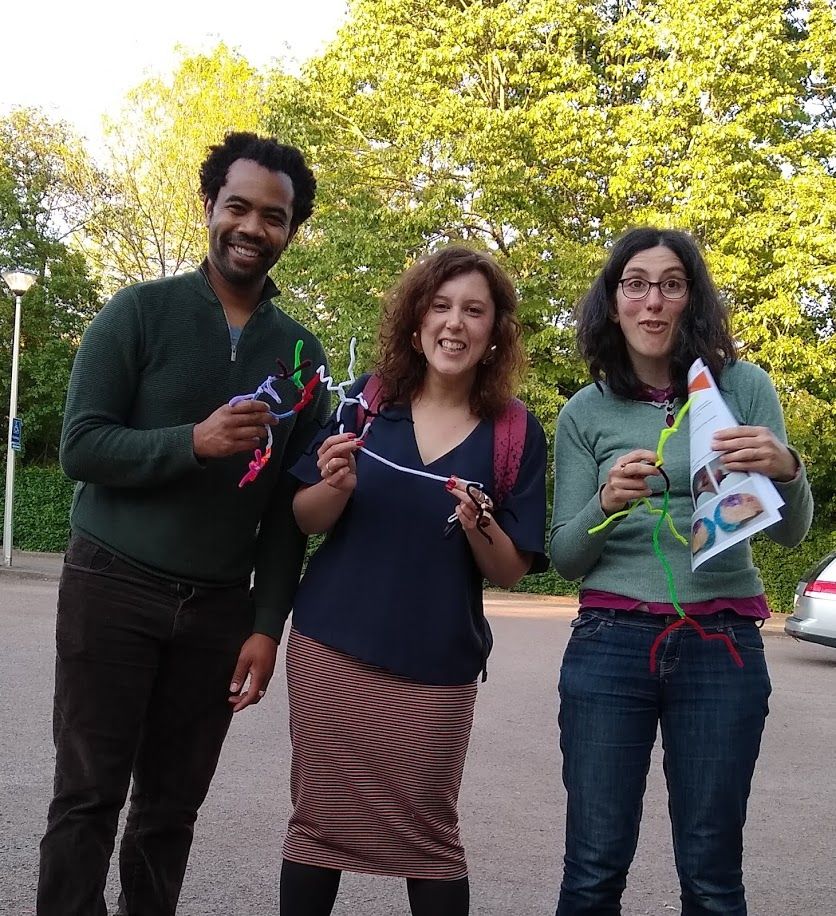Research Spotlight: ‘I want to get high enough up the chain to pull others over the wall with me’
Continuing our series celebrating ‘amazing people at Oxford who you should know about’, ScienceBlog talks to Dayne Beccano-Kelly, an electrophysiologist and a Career Development Fellow in Oxford Parkinson’s Disease Centre, in the department of Physiology, Anatomy and Genetics at Oxford University.
With more than ten years’ experience in the field, Dayne discusses his research using human neurones to improve treatments and the quality of life for people with neurodegenerative conditions such as Parkinson’s disease. He also shares how he is aiming to tackle the lack of BAME leadership opportunities in STEM, by mentoring and inspiring black and minority ethnic scientists of tomorrow.
How would you describe your journey to Oxford?
I am from Cardiff originally, and took my undergraduate degree at Leeds University in bio-chemistry, as a route into medicine. But, after my first year, I changed my mind with a stint in research, as part of my year in industry.
Time and experience showed me that what I really wanted to do was science research, helping people, but being the one to garner the knowledge that would help. It is fun to be continually asking the questions, and driving the conversation on known scientific knowledge.
Was Oxford what you expected it to be?
Oxford is a melting pot of scientific ideas that are often brewing a stone’s throw away, which makes it easier to interact with other scientists and develop collaborations.
I have been here four years now and don’t feel marginalised at Oxford. I expected there to be a low number of BAME academics at Oxford, because there have been at every other institution.
Having lived in Vancouver directly before this, which I loved in a different way, I can feel the contrast. It’s great to be surrounded by so much history. Vancouver is younger than Arsenal FC, my football team.
What motivates you?
By understanding how Parkinson’s Disease works I am helping people every day. As a scientist, and on a personal level, that is one of the best things that we can do.
It is important to remember that there are people waiting for us to get this right. Meeting them patients as I/we do helps to consider them like members of my family. It makes you want to fight for them that little bit harder.
In a nutshell what is neuro electrophysiology?
Neurotransmitters are chemical messages that allow neurones to talk to one another. When received by a neuron the information is changed into and transmitted as an electrical current. It is this combination of chemical and electrical signal that allows us to move, think, talk remember and everything in between. Neurodegenerative disorders affects this communication by causing neurons to degenerate and die. In Parkinson’s disease (PD) it is a specific set of cells that produce a neurotransmitter called dopamine which are under threat. These control goal directed movement and cognition and it is why we see the symptoms we do in PD as these neurones are no longer able to do their job.
 Dayne and his colleagues from the Wade-Martins research group. Image credit: OU
Dayne and his colleagues from the Wade-Martins research group. Image credit: OU
How does your research support care improvements in this area?
My research focuses on converting adult human cells into stem cells, and then converting them into neurones so that we can test for changes in Parkinson’s Disease. The cells that we create are plugged into an open electrical circuit, which we use to measure how neurones talk to each other, via the chemical-electrical signals that I mentioned. I have focused my work on looking at the earliest possible changes we can see in this cross talk between neurones, and what this can tell us about what is going wrong in the condition. If we can understand this, we could begin to think of stopping the disorder in its earliest stages.
In the past this research has been conducted using animal cells, cell lines etc., but this is the first time we are able to use human neurones to investigate human disease in this way. Understanding these cell changes can help us to tailor medicines to better treat the condition.
How did you come to specialise in Parkinson’s research?
As a child I always wanted to be scientist, and naturally wanted to make people better. As a young boy, I apparently stood at the bottom of my arthritic grandfather’s bed, and said ‘I am going to fix you.’ So early on my path was set.
When I was studying at Leeds I was awarded a year in industry at the Mayo Clinic in America, and that sealed the deal. I had a great mentor there, the pathologist Dr. Dennis Dickson. His effervescence and passion for his work rubbed off on me and I just thought ‘man, this is what I want to do.’
My work there focused on Progressive Supranuclear Palsy – an atypical Parkinsonian disorder. I have worked on different neurodegenerative conditions throughout my career at different institutions in various parts of the world, including Scotland, Canada and the US.
What is the most surprising thing you have learned through your research?
As scientists we should just want to know the truth, however, not every scientist sees it that way and that baffles me. I heard a great quote from Prof. Diane Lipscombe at a conference I attended a few weeks ago, she said: “Always follow the data, it will always be more interesting than your imagination can ever generate.” I love that, I think it’s great to generate unexpected things; it’s another question to answer.
I also find it surprising and sad, that I have not encountered more black senior scientists in my career. I find that very jarring.
Has this lack of BAME mentoring opportunities affected your own career?
I’ve been driven enough to get to this stage by myself, but it’s an issue, It would have been nice to have a senior black individual that I could ask, ‘how did you do it? What were the things that you encountered? Was it the same as my experience, or am I just some kind of strange outlier?’
I work with black female and Asian team members, but I am the only black man, and have been in every place I have worked. I very rarely encounter another black male person – sometimes there are postdoctoral students, but they are few and far between.
I am at a point in my career where I want to reach PI level, in order to be a mentor and a leader to the next generation. I love teaching and want to start engaging with people like the British black academics, and teaching groups where there are more opportunities to mentor.
What do you think can be done to change this imbalance?
It is important for young BAME students to see role models as early in life as possible. I want to start programmes that engage them earlier, offer mentoring and introduce them to role models like them, as early as possible.
Many black families who have had senior generations encounter prejudice, preach that you must persevere and you will get a chance to show what you can do. My family was definitely one of those. However, there are a few that sometimes say that certain roles are not for us, and that if you try you will face discrimination. These are in the minority, but it does happen and is very damaging. I want people to see what I am doing, how I am doing it, and see that it isn’t not worthwhile.
What do awareness activities like Black History Month mean to you?
I’ve been really happy to see the University getting more involved in this. People take notice of Oxford, and, from my stand point, the more the University does, it can only be better for everybody.
There are lots of awareness activities throughout the year, a day here, a week here, and I am really glad that it’s a month. Right now we have to do this though, because we have to make people proud. But, you want to reach a stage where dedicating a month to it doesn’t make sense. Why limit it? Let’s celebrate all cultures, all year round.
Are there any things that Oxford as an institution could do to be more inclusive?
Athena Swan was first introduced to create parity in the field for women – as it should be. But, the equivalent (the Race equality Charter) and its awards have far less of a song and dance made about it. I would like to see more effort in this area.
I’m not saying that 50% of professors at Oxford should be black – that would be disproportionate, but there is a disparity between the number of BAME in Britain, and the numbers that enter University, and even more so the attrition of those doing STEM subjects at degree to those doing PhD or higher. It needs to be something that is spoken about more openly, more often and more loudly without shame and actively changed.
If it isn’t, then instead of waiting for it to be the general consensus, why not start the trend here? You’re Oxford. If you are going to use your clout for something, this would be great place to start.
Access in higher education is a very topical issue at the moment, do you have any ideas on what could improve the sector for BAME students
It’s important to keep the dialogue going and make your voice heard. The dialogue for our generation has to be, we need more senior black and Asian scientists.
 Dayne is a passionate advocate for the power of mentoring, and is keen to work with young BAME pupils, introducing them to academic role models that they can relate to early on in life. Image credit: OU
Dayne is a passionate advocate for the power of mentoring, and is keen to work with young BAME pupils, introducing them to academic role models that they can relate to early on in life. Image credit: OUI was reading about how ‘Stormzy effect’ is driving Cambridge access progress, which is a great message overall. But, it is not tenable to do this across the board. That’s why I am so passionate about encouraging BAME students in academia and doing so from an early age. The more of us there are, the more we can show that we are just as capable as anyone else. Over time there will be a generational shift, and people will just focus on the science, not the colour of your skin.
Has prejudice been a factor in your career?
I have encountered certain prejudices in my career – not at Oxford, but it has happened. People have made flippant comments about my benefiting from positive discrimination, things that shouldn’t be said to me, or to anyone in this decade.
As a black academic, sometimes when you talk about your experiences you get shot down for being over the top, or ‘always’ going on about race. When in actuality, it is the first time you have said anything.
Just because people cannot imagine it, or have not had that experience themselves, does not mean it doesn’t exist. It is a real thing.
Does this experience impact your approach to your work?
My colleagues and friends, would never expect anything less of me because of the colour of my skin. But I am sure there are people that do. I have been told in the street to go home, so I know they exist. I would be remiss if I didn’t have that consideration in my mind to try and change that, so the next generation don’t have to.
Andy Murray openly says that he doesn’t think of Serena Williams as anything more than a great tennis player, and a peer, rather than a female tennis player. That is the stage we have to get to. The task and achievement are the thing that is focussed on, not the gender or the race of the person doing it. It is something that can only come from the previous generation’s battle and fighting for that.
Have these experiences affected you personally?
I would be lying if I said no. Perception and bias are something that we are all prone to. If someone looks at me and makes an assumption, I probably do the same thing. But it is something we have to be aware of and try to make the change.
As a BAME individual you never know if people negatively respond to the colour of your skin, unless they outright say it, but I actively think about how I appear to others.
What motivates you?
I can only thank my family and my mum, for driving me forward. They instilled me with the confidence to succeed which has let me get where I am today. I am their project, they are the scientists.
Some of the stories that they have are just… I’ve experienced stuff, but I have never experienced that stuff. They raised me to always work twice as hard as anyone else, because you have to expect this behaviour, like the recent football game between England and Bulgaria. At times you despair, but I’m not going to lament it.
I just want to get high enough up the chain that I can pull others over the wall with me, if I start to berate and feel sorry for myself, I am not going to get there.
What is next for you?
Currently there is no known cure for any neurodegenerative disease. There are drugs that have been complete game changers, and have helped people to better cope with their disorder for a time. But sometimes medical trials on certain groups fail, and drugs are written off too early I believe.
I want to be involved in pushing forward a dialogue between academia, pharmaceuticals and the medical community. We have to be aware that the drugs we generate may only fit a subset of patients. Just because they don’t work for one group, does not mean they won’t for another.
 Dayne and colleagues. Image credit: OU
Dayne and colleagues. Image credit: OU